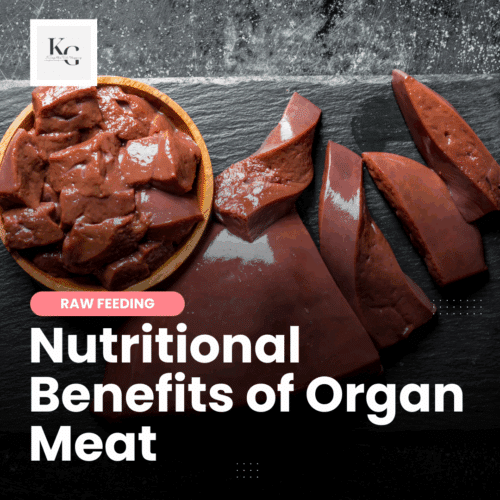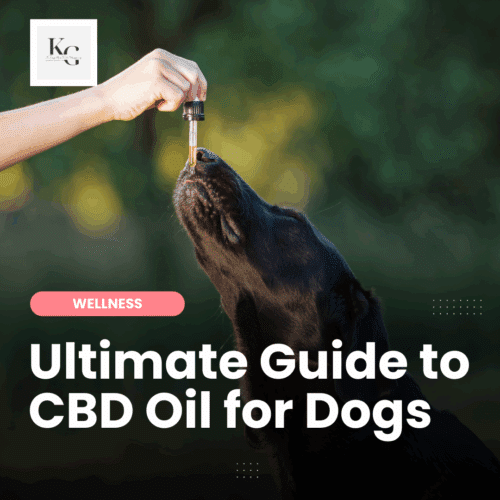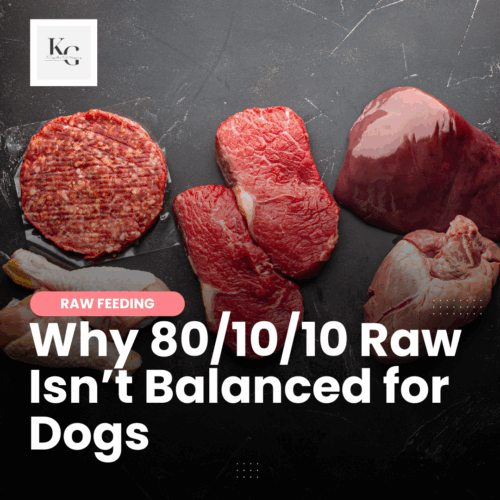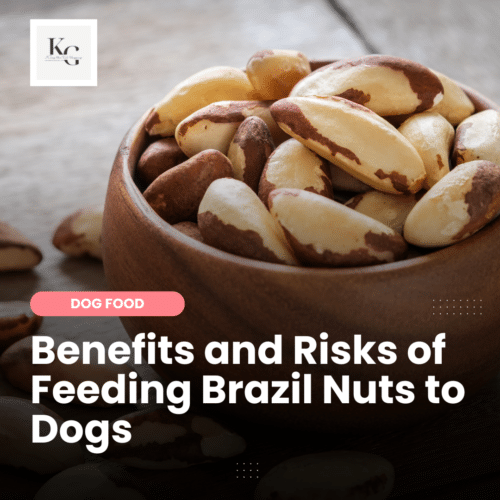Keep the Tail Wagging is supported by pet parents. I occasionally earn a commission (at no additional cost to you) when you click through an affiliate link to one of my favorite products. Thank you for your support. Read More
There was a time when feeding a vegan diet to dogs was a popular topic. It began when I learned about vegan activists in southern California who wanted local shelters to feed the dogs plant-based kibble. Initially, I laughed, thinking it was a joke. When I realized they were serious, I didn't think they had a snowball's chance in hell to make this happen. And then someone contributed something to the discussion that blew my mind: if the shelters are feeding very cheap kibble, it may be very low in animal protein and high in vegetation and carbs. She went on to state that the vegan kibble recommended might be better than the cheap kibble the dogs were being fed. #mindblown
What is a Vegan Diet for Dogs?
The pet food industry is trying to convince us dogs are omnivores; they've evolved to be able to consume a high-carb diet; this is false. Dogs are facultative carnivores, and I can't imagine what a vegan diet looks like for a carnivore.
A vegan diet for dogs is a diet that excludes all animal-based products and instead relies on plant-based foods to meet their nutritional needs. In a vegan dog diet, the primary sources of nutrition come from plant-based ingredients such as fruits, vegetables, grains, legumes, and synthetic vitamins. This means that the diet omits animal proteins (such as meat, poultry, fish, eggs, and dairy) and animal-derived ingredients like gelatin or animal fats. The aim is to provide dogs with a nutritionally balanced diet through carefully selected plant-based alternatives that meet their dietary requirements for protein, amino acids, synthetic vitamins and minerals.
Why Would Someone Feed a Vegan Diet?
Of course, this is speculation, but I guess that people are interested in a vegan diet for two reasons:
- Dog parents don't want to support the factory farming industry.
- A dog is allergic to every protein available, and a plant-based diet is the only option.
Should Dogs Eat a Plant-Based Diet?
I completely understand that if a dog can't eat any protein available, a plant-based diet may be the only thing left to consider. But before we run to the organic vegetable aisle of the grocery store, let's consider a few things:
- Dogs are carnivores – look at their teeth. They're sharp and pointy, meant to tear and rip muscle meat.
- Dogs have shorter digestive systems, perfect for a species-appropriate raw food diet. Vegetables take longer to process, and dogs may not get the nutrients they need before they pass through their digestive tract.
- Dogs may have trouble digesting vegetables. Pureeing, blanching, freezing, and fermentation break the cellular wall, making nutrients more bioavailable. I prefer pureeing and fermentation to protect the nutrients.
- Dogs need 22 crucial amino acids to meet their metabolic and energy needs, but their bodies can only produce 12. The remaining ten must be obtained through their diet. Unlike herbivores, which can produce amino acids in large quantities due to their lengthy GI tracts and multiple stomachs, dogs cannot do so with their simple and short digestive tracts. Therefore, they must acquire preformed amino acids directly from their food.
Holistic Veterinarians on Vegan Diets for Dogs
“The amino acid deprivation, as well as the mineral deprivation, which is common in most dogs generally translates to a dog that wants to eat everything! Toilet paper, metal objects, clothes or anything to satisfy that deficiency. These dogs do not live very long and do have a variety of strange health problems. Even with synthetic amino acid supplements, there are still problems and I do not recommend this diet.”
~ Dr. Donna Kelleher, Whole Pet Vet
Benefits of Feeding a Vegan Diet to Dogs
There are no benefits to feeding a vegan diet to dogs. However, I understand why dog owners might be attracted to feeding a plant-based diet:
- Some pet parents feed a plant-based diet temporarily to help their dog lose weight, as the start of an elimination diet to identify sensitivities, or as a detox.
- Some pet parents feed a plant-based diet because they eat the same diet and believe it's a healthier choice; they also think their dogs are omnivores and have evolved to consume this diet.
- There is a raw feeding model that approves feeding dogs a large amount of vegetables (sometimes more than animal protein). However, some individuals have questioned the safety of Rotational MonoFeeding dogs.
I would first test their gut microbiome or for leaky gut syndrome before switching my dogs to a plant-based diet,
Risks of Feeding a Vegan Diet to Dogs
Dogs fed a vegan diet are at risk of the following health conditions:
- inflammatory bowel disease
- urinary and kidney issues
- increased allergy systems due to the reliance on grains in the diet
- poor weight gain
- muscle loss
- adrenal issues
Source: Dr. Donna Kelleher, Whole Pet Vet
Additionally, plant-based pet diets utilize synthetic vitamin blends to balance the diet to AAFCO standards. It's important to note that synthetic vitamins and minerals have a different structure than their natural counterparts, making them less bioavailable and difficult for your dog's body to process. The synthetic compounds mimic the natural ones, but they are actually mirror images of each other.
The production process of synthetic nutrients in the laboratory differs significantly from how they are created in plants and animals. Therefore, even though they have a similar structure, your dog's body may react differently to synthetic nutrients.
Over-reliance on synthetic vitamins can have adverse effects on health, including negative impacts on cognitive functions, weakened immune systems, disruptions in bone development, higher toxicity levels, liver and kidney disease, digestive issues, and accelerated aging.
So, Should We Feed Our Dogs a Vegan Diet?
Unless we're under strict orders and the guidance of a holistic veterinary nutritionist, I don't believe a vegan or plant-based diet is appropriate for dogs. Raw feeding is a superior option for dogs with digestive issues, food sensitivities, and it's humane. If a dog owner is attracted to plant-based pet diets due to farming practices, feeding food sourced from humane farmers is an excellent choice. I source meat through a reputable co-op from local farms that use humane practices. And dog owners can order raw food from reputable food brands.
If you have a dog with protein sensitivities and it appears that a vegan diet is your only hope, consider testing your dog's gut microbiome. Or you can try a leaky gut test, which is a condition that can result in food sensitivities.
Read More About Raw Feeding for Dogs
- The Nutritional Benefits of Organ Meat for Raw Fed Dogs
- Are You New to Raw? Here are the Basics
- The Pros and Cons of Raw Feeding for Dogs
- Why the 80/10/10 Raw Food Diet Isn't Balanced for Dogs
- What Every Dog Owner Should Know About Rotational MonoFeeding

















I stumbled across this blog post because I was just recommended Dr Picairn’s book and when I found out he supported vegan diets for dogs I was curious about the topic.. Thank you Kimberly for this post. I am so sorry about all the pushback you are getting.
As an outsider reading this thread my jaw is on the floor. Not because there are so many proponents of vegan diets for dogs but the revealing aspects about human nature and confirmation bias. Nearly every commenter at some point who has criticized you has either 1) skipped over or blatantly missed points you brought up and then accused you of not addressing them after the fact (perfect example is the last comment schooling you on how dogs are not obligate carnivores which you’ve clarified several times) 2) felt so threatened that you came to a conclusion they disagree with they needed to attack you personally (my favorite was “I wasted valuable research time on this) 3.) Were utterly hypocritical in accusing you of using anecdotal evidence to support your claims, despite the fact that you clearly researched the matter, then backing their own claims with flimsy evidence ranging from anecdotes (my dog hasn’t been sick in five years) to a single book or laughably a Guinness world record 4) refused to acknowledge their own confirmation bias while accusing you of the same thing “I’m not pro-or anti-vegan but I’m a vegan and this article is against veganism for dogs so it sucks”
I never saw you as having implicit bias against veganism for dogs, but in all honesty any sane person with scruples would approach such a proposal with at least SOME skepticism. Come on people!
There are a lot of alternative diets in the human world that are yet to be supported by science (or have been completely debunked) that may help some people, but again, the evidence is anecdotal, and you can’t get mad at someone for drawing a conclusion that sides with science and evidence and that disagrees with fringe-views.
You clearly state that while you don’t personally recommend veganism for dogs unless under the guidance of a well trained veterinarian for specific health reasons, you at least don’t disparage those who do follow the diet.
Why do people feel so threatened? Do they think you are going to take their sweet potatoes away and force feed their dogs with Iams?
For all of the pro-vegan dog owners out there criticizing this woman, keep in mind a few things: this isn’t an article. It’s a blog post. But even for a blog post, she went above and beyond. She did do research and even contacted a respected veterinarian before drawing her conclusions. And two, while there may be some evidence, be it anecdotal or emerging, that supports carefully planned vegan diets in dogs, the overwhelming science-backed consensus is that generally speaking it is not an ideal diet. If you research the matter from an objective standpoint, you will find the overwhelmingly vast majority of evidence is in support of a meat-centric diet for dogs and contradicts your view. And lastly, while the evidence supports her claims that dogs are in fact carnivores, if they are omnivore as some of you suggest, that would mean THEY’RE NOT VEGANS.
If you have had luck with feeding your dogs a vegan diet then that’s great! Wonderful. But don’t get mad at someone for drawing a sane conclusion to the contrary.
http://www.vetstreet.com/our-pet-experts/are-dogs-carnivores-heres-what-new-research-says
A couple of examples of long living pets isn’t enough to convince me that a dog, which is a facultative carnivore, should be fed a vegan diet unless this has been determined to be the best diet by a veterinarian who also closely monitors the diet.
Please look at the Guinness book of world records. One of the dogs listed, which was the oldest at the time lived to be 27. My lab lived to be 17 on a vegan diet. Dogs are not obligate carnivores like cats.
Referencing one veterinarian and a kibble brand as evidence that a vegan diet for dogs and cats is appropriate doesn’t enough to convince me that this is safe for our animals unless it’s closely monitored by a veterinarian experienced in animal nutrition. Sadly, what I’m seeing based on the negative reactions to this and other blog posts are people who have determined that since they are vegans/vegetarians, their animals should be as well as they aren’t taking the measures to ensure that their animals are getting all of the amino acids and other nutrients needed to thrive.
While I respect the right of others to feed their animals how they please, I will not agree that a vegan diet is appropriate for cats, who are obligate carnivores. And I also believe that dogs are facultative carnivores, meaning that while they can survive on a plant-based diet, they will thrive on a meat-based diet. I believe in feeding animals according to their species – dogs, cats, snakes, all animals should be fed according to what they were intended to eat, not based on what humans have deemed to be important based on human morality. For my dogs and cat, that’s a diet of raw meat, bone, organs, and other ingredients that support and promote a healthy gut biome. For me, that’s a mostly plant-based diet (working my way to vegetarian). And in feeding my dogs, I don’t support factory farming; instead, I support local, humane farmers.
Thank you for taking the time to share your thoughts.
Thank you, Kimberly, for your deep concern for dogs. That is clear from your blog posts and is very much appreciated. The negative comments that you make concerning vegetarian/vegan diets for dogs, however, do not seem to be supported by the evidence. There are in fact numerous veterinarians who encourage vegan diets for dogs and have found a wide range of health benefits from that diet for the dogs, along with all the other reasons (concern for animals, environmental impacts, etc.) for considering a vegan diet. One of the most helpful resources on this topic is the newly revised, 4th edition of the classic “Dr. Pitcairn’s Complete Guide to Natural Health for Dogs and Cats” by Richard Pitcairn, DVM, Ph.D., and his wife Susan Hubble Pitcairn. The Pitcairns were early pioneers in holistic medicine for dogs and were among the early supporters of a raw meat-based diet, but now, based on their own many years of experience and that of others, recommend a vegan diet as generally the best option. Their views are well worth considering. A couple other helpful resources on vegan diets for dogs are https://v-dog.com/blogs/v-dog-blog/3-studies-on-vegan-diets-for-dogs and https://www.care2.com/greenliving/good-nutrition-for-healthy-vegan-dogs.html. A good, nuanced discussion concerning cats can be found at http://vegancats.com/veganfaq.php.
Just because we disagree doesn’t make this blog post (it’s a blog post, not an article) bogus. It just means we disagree. That is okay. When we disagree, it’s an opportunity to explore more with each other. We shouldn’t take it as an opportunity to attack and tear down others. In a world where people are constantly attacking each other for the silliest, most petty things, I think we should focus on doing better and being better. I’m positive that you have better things to do than troll my little blog about raw feeding. Why not find blogs that are more in line with your beliefs since you’re obviously not interested in exchanging ideas with me. Or even better, why not start your own blog! Put yourself out there, share your ideas, and stand up for what you believe in instead of tearing down others who have a different point of view.
Just because we have different points of view doesn’t mean that there is an agenda. I was curious about the diet, I spoke with several pro-vegan veterinarians and dog parents, and I shared my thoughts from both sides of the aisle. There are definitely people out there who completely disagree with vegan diets for dogs. Me? I don’t think a vegan diet is right for MY dogs. I believe that dogs are facultative carnivores, not omnivores. And I’m not alone. However, I’m not a nutritionist, scientist, or veterinarian. I’m a dog parent who was curious about a diet option for dogs so I did my research and wrote a blog post on my blog about it.
While I respect your right to disagree, I think it’s unnecessary for you to become aggressive in your opinion. All you’ve done is shut the door on a conversation because your comments, you’ve shown me that you are very closedminded, you’re unwilling to listen to a point of view other than your own, and you’re kind of mean. Which isn’t a surprise. I’ve not only tried to speak with more people about vegan diets for dogs because of stories of dogs that are thriving, but all I’ve received is aggressive responses. I’ve even tried to learn more about going vegan myself and, again, all I’ve received is aggressive responses.
I suggest that you follow your own advice. Only with an open mind will we learn something. There are groups dedicated to shutting down vegan diets for dogs; yet you choose to attack me. Very interesting. And sad.
Dogs are omnivores. This article is bogus. I hope everyone who read this goes out and does some REAL research with an open mind. Vegan dogs THRIVE
agreed. Please look up some real fact based articles…this woman clearly had her mind made up and it seems this article was just her way of furthering her agenda to discredit a vegan diet for dogs. My dogs are vegan, as are my parents dogs, my employer saw how well our dogs were doing, going off medications, losing weight, allergies disappearing etc. that they too switched their four dogs to VDog dog food. I hope you have found your answers. Sorry we have to come across articles like this in the mean time. Open your minds, people…you just might learn something.
Vegan For The Animals
Ava – it’s not about believing everything I read. It’s about listening to experienced veterinarians and nutritionists. Dogs are carnivores, not omnivores. The biologically appropriate diet for dogs is 80% muscle meat, 10% bone, 5% liver, and 5% offal. While I do add vegetables to my dogs’ diet, it is a small part of their diet and I prefer that they are fermented to add the beneficial probiotics.
I appreciate you sharing your experience, however, one person who chooses to feed their dog a vegan diet isn’t going to discount the word of several veterinarians who believe otherwise. I personally think that unless directed by a veterinarian experienced in canine nutrition, a vegan diet for dogs can be very harmful. Just as a raw diet can be if someone fails to learn how to feed a balanced diet to their dog.
Dogs are not carnivores, they’re omnivores. My dog has been vegan for 5 years, never been sick. The vet is pleased about his great shape and energy. Stop believing everything you read, ask people who have vegan dogs instead 🙂
“Why can’t they take those amino acids from a vegan diet?”
Those amino acids are only found in MEAT (or supplements, yes, but not natural vegan foods).
“Who are these dogs?” Do you want her to introduce you to every pet she’s
met? She’s a veterinarian. She’s probably seen hundreds of dogs over the years.
It wasn’t “blablabla” in between the “dogs need meat,” it was “THIS IS WHY” the dogs need meat.
It is clear from the way you read this that you are looking for confirmation of your own ideas, not facts.
Hi Hliana
Keep the Tail Wagging is a personal blog where I share what I learn about dog nutrition. In this post, I wanted to take an honest look at a vegan diet because there are reputable veterinarians proposing this as an option for dogs. Because this is a personal blog where I share my thoughts, I did wonder about the reasons people would feed vegan and the only reasons were (1) people felt sorry for the animals and didn’t want to be responsible for the death any animals to feed their dog and (2) their dog was seriously allergic.
If you are looking for more scientific evidence about feeding a vegan diet to dogs, I suggest that you contact local veterinarians and ask their opinions. I can understand why you would think that a personal blog is a waste of your time, but I do appreciate you taking the time to leave such a long, well thought out comment. It’s always nice to see varying points of views and I appreciate the blunt feedback.
I ‘m a vegan researching about whether or not my dog would be healthy on a vegetarian diet. Your article had no information of substance on the matter. Your and your vets’ opinions were basically ‘bla bla bla dogs need meat bla bla they can’t be vegan blabla don’t force your opinions on them’. You mentioned the needs of dogs concerning diet but you didn’t once explain why these needs can’t be fulfilled with a vegetarian/vegan diet. You also wrote that you couldn’t find any benefits from vegan diet but many risks, but when I searched I found many of them. How so??? “Dogs require 22 essential amino acids to handle all their metabolic and energy requirements, but their bodies are only able to produce 12 of the 22. The other 10 must come from the food they eat.”. Why can’t they take these amino acids from a vegan diet? “These dogs do not live very long and do have a variety of strange health problems. Even with synthetic amino acid supplements, there are still problems and I do not recommend this diet.” Who are these dogs she has known of that died due to veganism and which are these strange health problems?? Not to mention the video of Rodney Habib, Pet Nutrition Blogger. I eyerolled hard just looking at the thumbnail. When you write an article about whether or not a dog can thrive on a vegan diet you must consider both sides. Your article shouldn’t be called “Can a dog thrive on a vegan diet” but “A dog can’t thrive on a vegan diet”, since you already had your answer and just tried to make it valid to readers using the opinions of some vets clearly against it but without any real and solid reason and information. I ‘m not pro or against vegan diet on dogs and that’s why I ‘m researching but your article was just a prejudiced, misleading, uninformative one. I didn’t learn anything and I wasted important time of reasearch reading this.
I thought this post was so interesting. I shared it in That Mutt’s newsletter today. I was a vegetarian for about five years (although never a vegan) but as soon as I started handling raw meat for my dog I went back to eating meat again myself! I eat pretty “primal” now with lots of meat and veggies. (But I love bread, pasta and sweets! Oh, and beer!) I’m sure some dogs can get by on a vegan diet just as they can “get by” on a diet of mostly corn and rice but it’s not ideal.
The only reason I could think of is severe protein allergies. I have met someone who had a dog that seemed to be allergic to everything and there are breeds that have severe allergies. And even then, it’s hard to think that vegan is the only option. This one was interesting to research.
I was pretty sure the short answer to the question was “no” but I was also curious to know why anyone would even consider feeding their dog a vegan diet. I’m actually kind of surprised a veterinarian would even recommend it.
I understand not wanting to support factory farming, but that’s a great reason to support your local farmer instead. Dogs need what they need, and I agree with Dr. Kelleher that if you can’t handle it, you should get a pet that can eat the way you choose to. I know someone who has goats and they do make great pets – we’re even considering getting some one day!